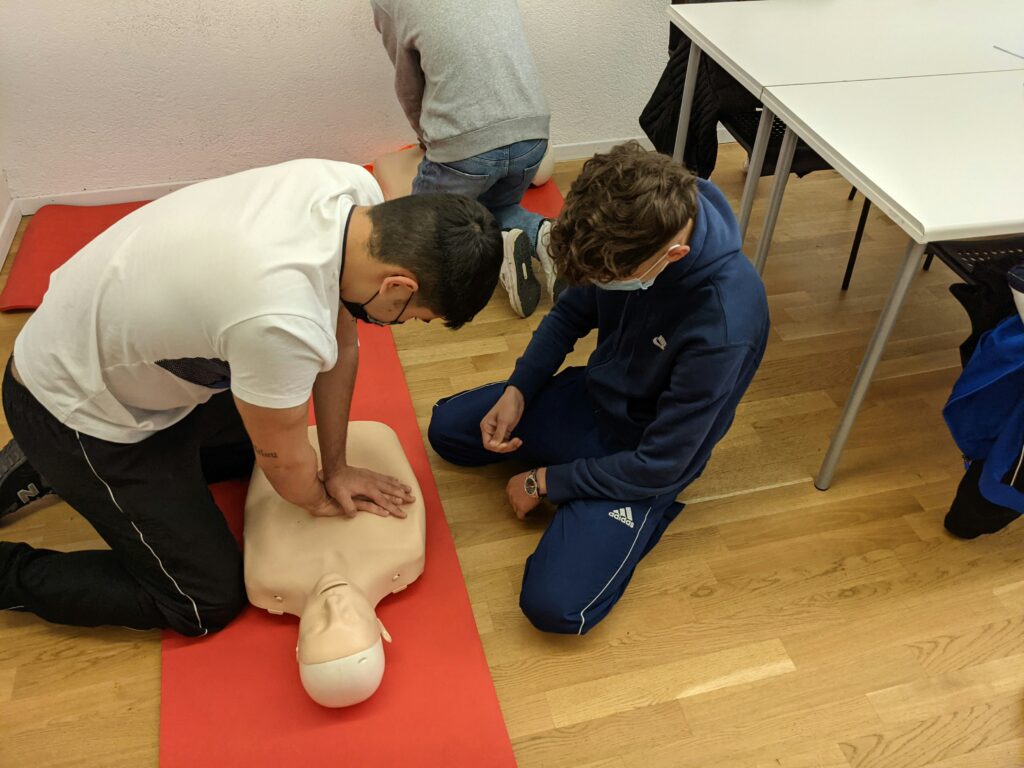Reasons to Take a Cardiopulmonary Resuscitation (CPR) Class
In the unpredictable rhythm of daily life, emergencies can occur at any time, and knowing how to respond can be a matter of life or death. CPR is a crucial skill that can significantly increase the survival rate of individuals experiencing a cardiac arrest. By taking a CPR class, you equip yourself with the knowledge and skills vital for managing these critical situations effectively. This article delves into the myriad reasons why learning CPR is not only beneficial but arguably a civic responsibility. Below are compelling insights that illustrate the value of CPR education and certification.
The Role of CPR Training in Improving Community Health and Safety
On a broader scale, widespread CPR training serves as an effective community health strategy. Communities with a higher ratio of CPR-trained individuals display better outcomes in emergency situations. This collective empowerment contributes to a safer environment where residents can rely on each other in times of need.
Partnerships between local health organizations and CPR instructors play a critical role in promoting widespread CPR competency. AHA BLS CPR Class in San Diego, CA is an example of accessible training that can cultivate a network of capable first responders within the community. This initiative enhances the overall emergency response infrastructure.
Furthermore, CPR training encourages individuals to take ownership of their community’s well-being. It creates a shared sense of commitment to the health of neighbors, colleagues, and acquaintances. As more people become trained, the community becomes increasingly resilient against medical emergencies.
Empowering Yourself to Save Lives With CPR Knowledge
Knowing that you can be the critical factor in rescuing someone’s life is a powerful motivator for taking a CPR class. The confidence that comes with this knowledge enables you to act swiftly and efficiently, potentially transforming a desperate situation into a lifesaving opportunity. CPR training cultivates a sense of responsibility and courage in individuals, empowering them to step forward when needed.
Being trained in CPR also mitigates the feelings of helplessness that one might experience during an emergency. Instead of being a passive observer, you become an active participant with the capability to alter the outcome. Indeed, the very act of stepping in to perform CPR can encourage others to learn and be prepared to help as well.
CPR education also contributes to the demystification of medical responses. As participants learn the mechanics of CPR, fears and misconceptions are replaced with factual knowledge and procedural understanding. This demystification is crucial in fostering a proactive approach to emergency interventions amongst the general populace.
Enhancing Your Employability With CPR Certification
From a professional standpoint, CPR certification is a formidable addition to any resume. Employers often seek individuals who exhibit a commitment to health and safety, and being CPR certified underscores one’s dedication to these principles. For those in teaching, child care, or other caregiving professions, this certification can be especially pivotal.
Some industries, such as construction, hospitality, and recreation, often require or strongly prefer candidates who are certified in first aid and CPR. The presence of trained staff is not only an asset in terms of workplace safety but also enhances the company’s reputation for being proactive and socially responsible. Investing in CPR certification can therefore have tangible career benefits.
In many cases, having a CPR certification is not just a preference but a strict requirement. Regulatory bodies in various occupations mandate CPR training to ensure compliance with health and safety standards. The certification process also provides verification that the knowledge is current and that the individual is well-versed in emergency protocols.
Building Confidence for Crisis Management Through CPR Training
One of the most significant outcomes of CPR training is the development of confidence in managing emergency situations. Having a systematic approach to crises allows individuals to control panic and act more effectively. This newfound confidence doesn’t just apply to medical emergencies; it translates into a more generally assertive and proactive mindset.
CPR classes often include training on how to remain calm, think clearly, and communicate effectively during an emergency. These essential skills fortify one’s ability to handle a wide array of challenging situations in life. They can also improve individual performance in high-pressure environments, such as workplaces and public spaces.
Overall, the reasons for taking a CPR class extend far beyond the immediacy of life-saving actions. They encompass personal empowerment, enhanced employability, and the fostering of a safer and more resilient community. Everyone stands to benefit from the essential skills acquired during CPR training, affirming the critical role it plays in our collective health and safety.

